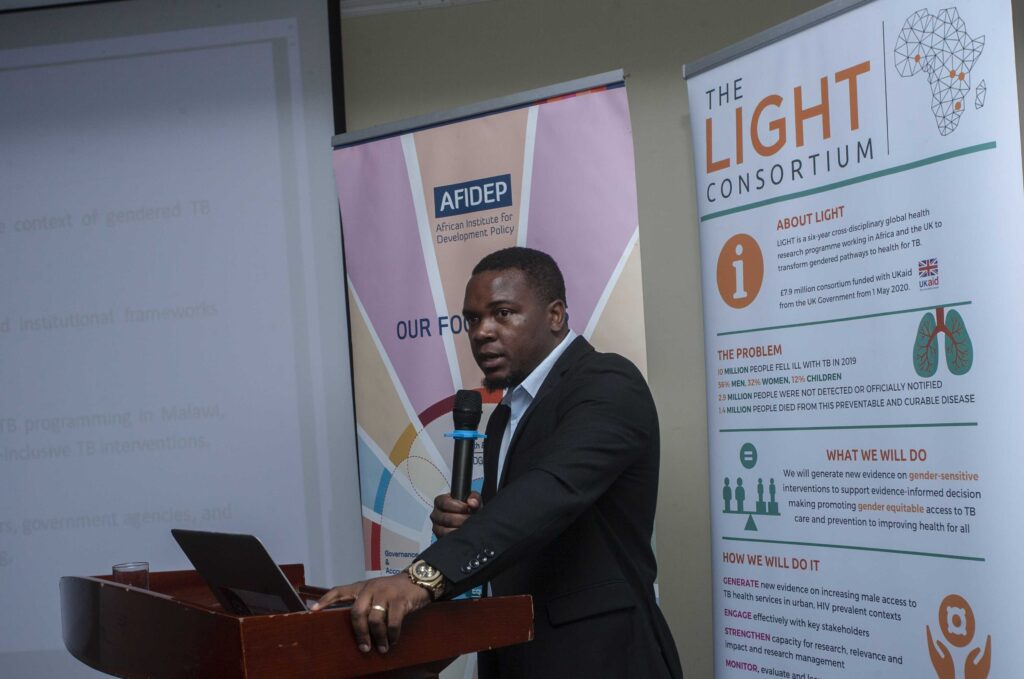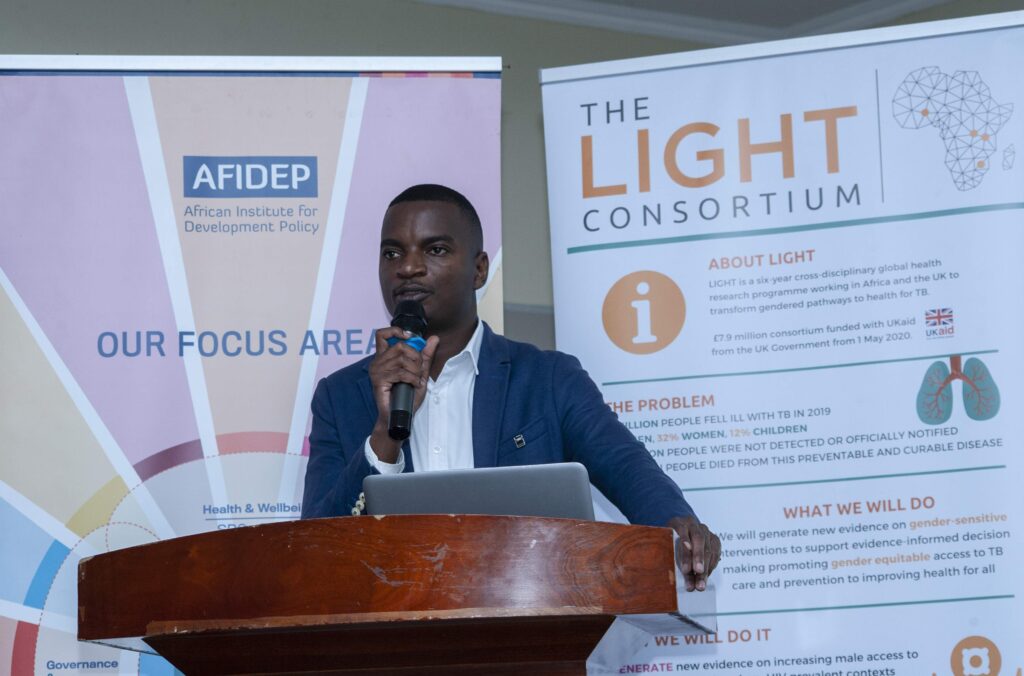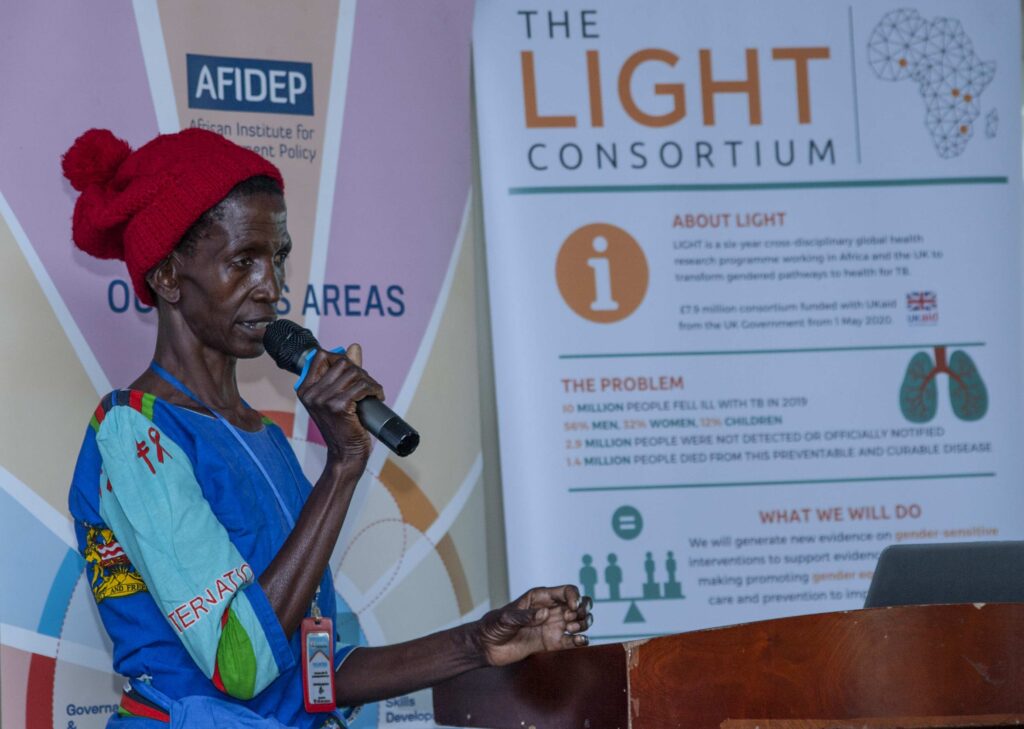
By Lovemore Khomo
Widespread poverty heavily affects health issues such TB and HIV in Malawi, reveals Liverpool School of Tropical Medicine-LSTM 2020/21 research.
According to Dr. Benjamin Azaria Mosiwa, a Research and Policy Associate for African Institute for Development Policy-AFIDEP and LIGHT-Consortium, said the study had used thematic and framework analysis, and descriptive statistics as some of its methodologies.
At a Media Science Café jointly organised with JournAids on improving gender responsiveness approaches to Tuberculosis-TB prevention and care in Malawi, Dr. Mosiwa shared that the objectives of the research were to analyse power dynamics and stakeholder interests in the context of gendered TB programming.
He added that the study assessed the gender responsiveness of existing policy and institutional frameworks related to TB control and identify barriers that impedes effective gender-sensitive TB programming.
“We also provided evidence-based recommendations to policymakers, government agencies, and development partners to enhance gendered TB programming and pinpointed politico-economic opportunities for gender-inclusive TB interventions.” said Dr. Mosiwa.
Dr. Mosiwa expressed concern over heavy economic burdens the country going through saying it affects the fight against TB.
He added, “Increasing reliance on foreign borrowing and donor aid has contributed to limited capacity for government to provide adequate health services.”
Other findings indicate that lack of decentralization limits the effectiveness of central and local governments on dealing with health issues and knowledge gap that contributes to re-emergence of preventable diseases like TB.
Furthermore on institutional findings Dr. Mosiwa said, “TB in general has a comprehensive regulatory framework with huge gap in policies and guidelines for gendered approaches, growing limited emphasis on targeted case finding interventions for various at risk groups.”
Meanwhile, Dr. Samuel Chirwa TB/HIV Fellow for National TB and Leprosy Elimination Program-NTLEP (CDC-MoH, CoAg) admitted that the concept of gender in TB is relatively new hence LIGHT Consortium to support addressing it.

On bridging the gap, Chirwa elaborated that NTLEP is working with partners like the LIGHT Consortium to bring forth a policy framework that will help to facilitate gender inclusion on dealing with TB in the country.
“Currently, we are reviewing the framework with our partners. At the same time, we have also planned for the first ever stigma assessment to be conducted in Karonga, Lilongwe and Blantyre which will help us know the burden of it on issues of TB.” added Dr. Chirwa.
However, Dr. Chirwa explained that general statistics indicate tremendous improvement in the fight against TB in Malawi as the incidence has declined from 338 people Per100, 000 populations in 2010 to 132 people per 100,000 populations in 2021, which represents a 61% reduction over an 11-year period.
The NTLEP TB/HIV Fellow told the gatherers that interventions like systematic TB screening- FAST approach, mobile TB diagnostic screening for active case finding, advanced specimen collection for children, household contact investigation, Stool SOS Genexpert for children and House-to-house TB screening have led to the decline in TB cases.
One of the TB survivors Rhoda Mbeta from Menyani Village, T/A Kawele in Mchinji testified about facing many gender, stigma and discrimination challenges when she got diagnosed with TB the year 2010.

“None of my relatives could help me during admission at the hospital. I couldn’t take a bath for close to 8 or 9 months because there was no one looking after me.” narrated Mbeta.
The testimony comes when the country still tries to assess gender responsiveness, and stigma and discrimination on dealing with TB.
In addition, veteran journalist George Ntonya who freelance with Agence France-Presse (AFP) advised fellow participants to vehemently take TB reporting as a special beat and to make them write and publish human-face stories that can change the understanding of the society on TB.
Men contributes to 2/3rd infections hence the need for gendered policies to address TB amongst them. On 10 million people who fell ill globally men comprise of 56%, women 33% while children make up to 11%.


